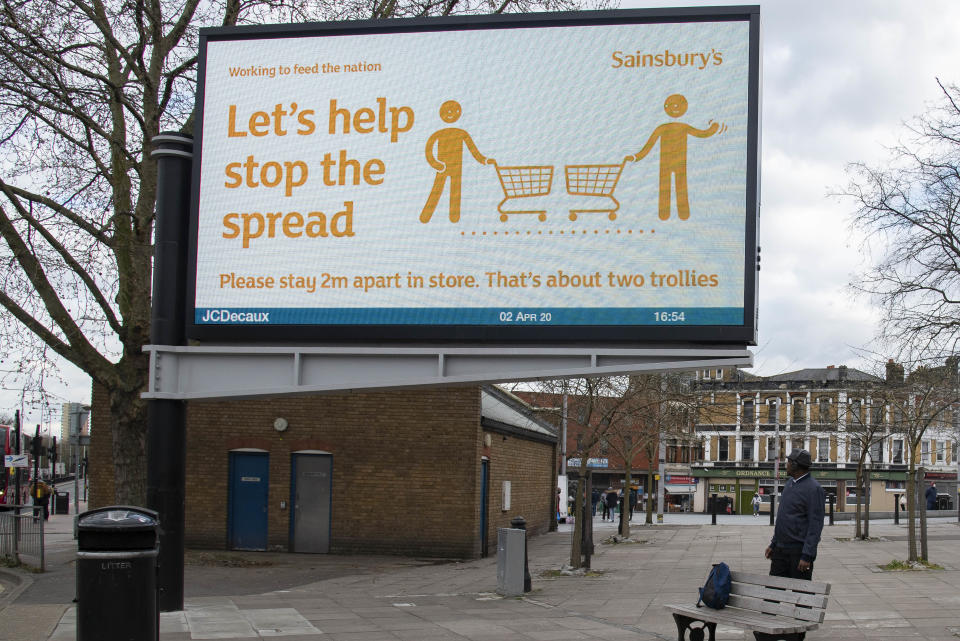Coronavirus: Sainsbury's still takes £500m COVID-19 hit despite grocery boom

Sainsbury’s (SBRY.L) shares tumbled on Thursday as it warned a £500m ($623m) hit from the coronavirus would leave its profits near flat, despite soaring grocery sales during the lockdown.
Britain’s second largest supermarket had seen its stocks briefly surge 2.1% on the open as it said its underlying pre-tax profits would be “broadly unchanged” in the year ahead.
The company’s shares then tumbled as concerns grew about its outlook for the year ahead after its preliminary results for its last financial year to 7 March and more recent trading update were published. It was trading 3.5% lower by around 9am in London.
The company is assuming lockdown restrictions will ease by the end of June, but disruption is expected until mid-September. “Weaker economic conditions” are expected to drag down consumer demand for even longer, particularly for general merchandise and clothing, which have already seen sales plummet.
READ MORE: Tesco shares sink on £925m coronavirus hit
General merchandise, a category including many items other than groceries, slumped 22% year-on-year in supermarkets in the seven weeks to 25 April. Clothing and fuel sales more than halved, down 53% and 52% respectively.
The company said COVID-19 would knock more than £500m off its group profits, which include Argos. It highlighted the “significant costs” of protecting customers and colleagues, weaker fuel, general merchandise and clothing sales and lower profitability in its financial services arm.
But it said this was “broadly offset” by the surge in grocery sales amid stockpiling and greater numbers of shoppers at home, as well as around £450m in business rate relief. The tax relief has proved controversial, with calls for busy supermarkets to pay it back as it was largely designed to help shops forced to close by the lockdown.
READ MORE: Shell slashes dividend for first time since World War II
Sainsbury’s also said it would delay a decision on dividend payments to later this year when COVID-19’s overall impact on the business is clearer. It confirmed no cash bonuses be paid to its executive directors and senior figures for 2019-20.
Overall group sales slid 0.1% to just under £32.4bn in 2019-20, down 0.1%. Underlying profit before tax came in at £586m, down from £601m a year earlier. Its statutory pre-tax profits came in at £255m, up from £202m the previous year.
Britain’s biggest supermarket Tesco (TSCO.L) also disappointed investors with a similar warning earlier in April, despite surging grocery sales and maintaining its dividend.
Tesco highlighted a significant leap in payroll and distribution costs. New hires have been not only to meet extra demand but also to “cover the work of those colleagues who are absent and being paid,” it said in its preliminary 2019-2020 results.

 Yahoo Finance
Yahoo Finance 